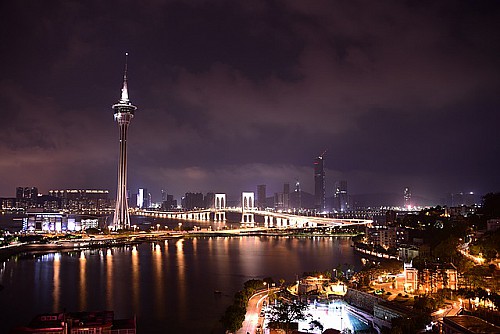Macau improves the Temporary Residency Scheme
Published at: 12/11/2018 01:08 pm
 The temporary residency scheme of Macau came under criticism by the Commission Against Corruption. Now, the Macau Trade and Investment Promotion Institute outlined measures to improve the programme.
According to the report from the Commission Against Corruption (CCAC), the IPIM approved applications for temporary residence for investments as low as 142,357 MOP (15,400 EUR). The questioned processes allowed applicants and their family members to obtain the resident status through real estate purchase.
Between 2008 and 2017, a total of 410 successful candidates have acquired temporary resident status in Macau under 186 significant investment or major investment plan applications, and 5,376 management personnel and specialised technicians obtained the residency for their professional skills. The Commission Against Corruption's report stated that several applicants acquired the resident status through "fake investment, employment, academic qualifications and Social Security Fund contributions."
Macau's Temporary Residence Regime for Investors, Management Personel and Specialised Technicians was introduced in 2005. The programme attracted non-residents who can apply for the temporary residence permit through purchasing property or significant investment. Meanwhile, the Macau residency by investment programme changed in 2007, because the legislators cancelled the real estate purchase option for the category of "management personnel and specialised technicians employed by local employers." Interestingly, the report's results are based on an investigation started in 2015.
According to the investigation, before 2015, according to the guidelines of IPIM, the minimum amount of investment was 1,5 million MOP (app 186,000 USD), and they raised the amount to 13 million MOP from 2015. However, only 15% of the applicants invested more than 1,5 million Macanese patacas in exchange for the resident status in Macau.
There were also problems with the investment targets. The applicants poured their money into traditional businesses as money exchange, goods purchasing, travel agency, laundry instead of the objective of the immigration scheme to develop the high-technology, cultural and creative sectors.
According to the IPIM's statement, they will conduct a new review of the current assessment system until the last quarter of 2018.
The temporary residency scheme of Macau came under criticism by the Commission Against Corruption. Now, the Macau Trade and Investment Promotion Institute outlined measures to improve the programme.
According to the report from the Commission Against Corruption (CCAC), the IPIM approved applications for temporary residence for investments as low as 142,357 MOP (15,400 EUR). The questioned processes allowed applicants and their family members to obtain the resident status through real estate purchase.
Between 2008 and 2017, a total of 410 successful candidates have acquired temporary resident status in Macau under 186 significant investment or major investment plan applications, and 5,376 management personnel and specialised technicians obtained the residency for their professional skills. The Commission Against Corruption's report stated that several applicants acquired the resident status through "fake investment, employment, academic qualifications and Social Security Fund contributions."
Macau's Temporary Residence Regime for Investors, Management Personel and Specialised Technicians was introduced in 2005. The programme attracted non-residents who can apply for the temporary residence permit through purchasing property or significant investment. Meanwhile, the Macau residency by investment programme changed in 2007, because the legislators cancelled the real estate purchase option for the category of "management personnel and specialised technicians employed by local employers." Interestingly, the report's results are based on an investigation started in 2015.
According to the investigation, before 2015, according to the guidelines of IPIM, the minimum amount of investment was 1,5 million MOP (app 186,000 USD), and they raised the amount to 13 million MOP from 2015. However, only 15% of the applicants invested more than 1,5 million Macanese patacas in exchange for the resident status in Macau.
There were also problems with the investment targets. The applicants poured their money into traditional businesses as money exchange, goods purchasing, travel agency, laundry instead of the objective of the immigration scheme to develop the high-technology, cultural and creative sectors.
According to the IPIM's statement, they will conduct a new review of the current assessment system until the last quarter of 2018.
